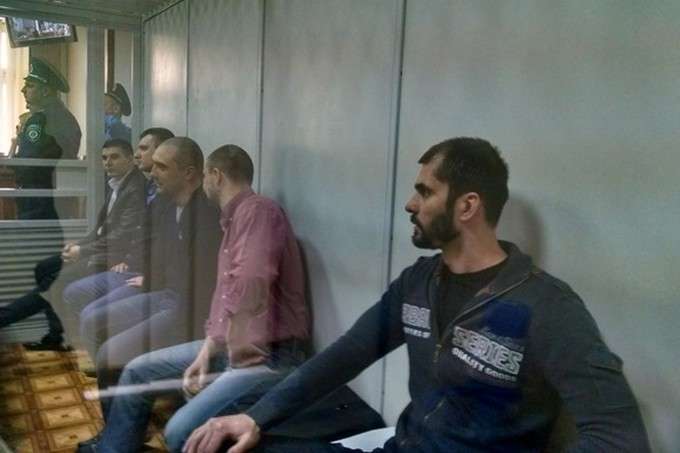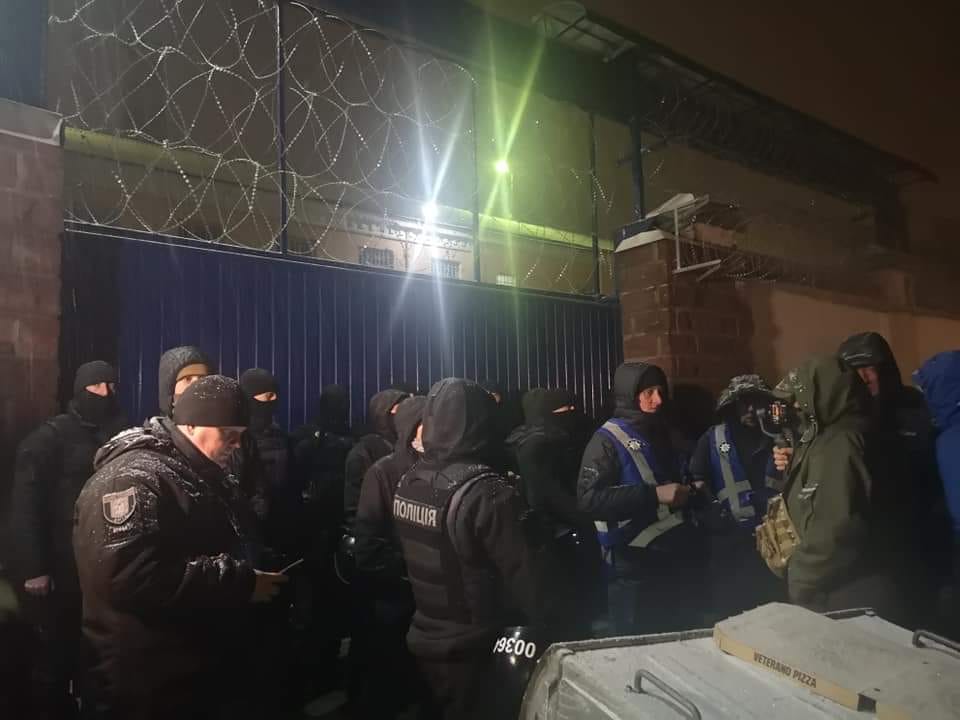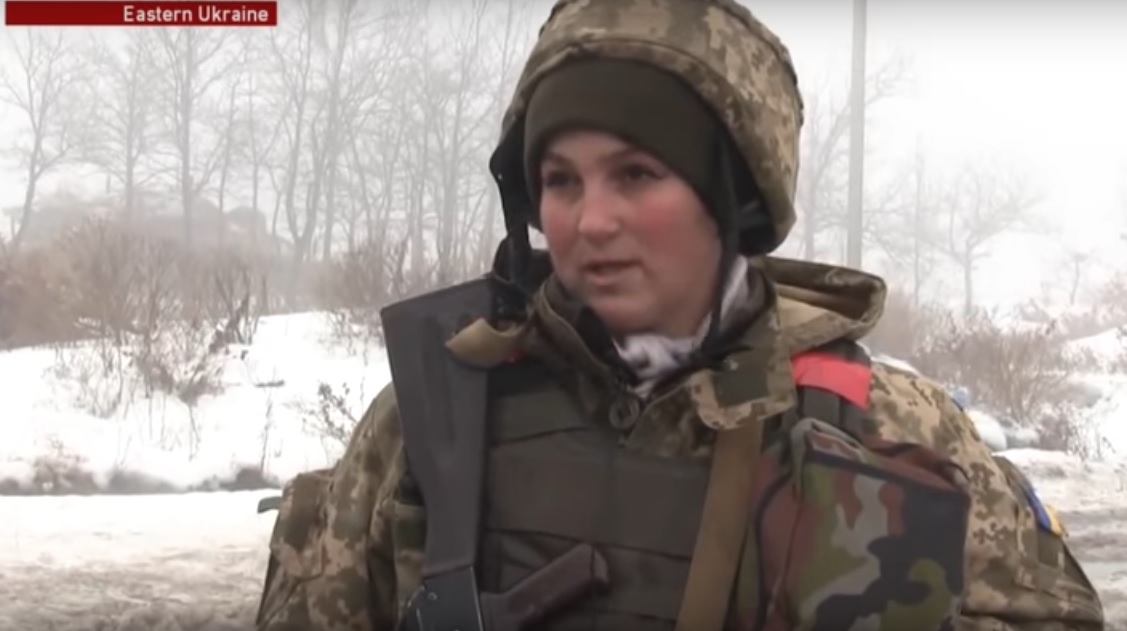5 ex-Berkut officers released from custody upon orders from Prosecutor General
Ukraine still doesn’t know who is behind the most important criminal case in its recent history – the massacre of Euromaidan protesters who protested against disgraced president Yanukovych’s abuse of power and U-turn towards Russia in February 2014. Five ex-Berkut police officers suspected of killing 48 and wounding 80 protesters at that time on vul. Institutska are the only suspects that could be brought to responsibility for the massacre – and the last link to finally identify its masterminds. Their 21 colleagues from the Black Company of the ex-Berkut special police managed to escape to Russia back in 2014, and some are now dispersing Russian protesters.

These five ex-Berkut officers have now been released from custody by a decision of the Kyiv Court of Appeals made on 28 December. It was made possible by Prosecutor General Ruslan Riaboshapka’s replacement of the prosecutors who had hitherto dealt with the Euromaidan massacre case with three new prosecutors – Serhiy Kutskyi, Vitaliy Subotin, and Oleksandr Shevalenko.
The new prosecutors, in the words of lawyer Yevheniya Zakrevska, were not informed in the case. “We are confident that everything that is happening now is being done for the exchange,” Zakrevska said.
Prior to leaving the room, the group of old prosecutors, Oleksiy Donskyi, Ihor Zemskov, Yanis Simonov, and Denys Ivanov, apologized to the court and the victims, saying that they are ashamed of what was happening. They opposed the ex-Berkut officers being included in the lists for the upcoming prisoner exchange.

The involvement of the prosecutors who had initially dealt with the case from the start was crucial for its success. That’s why Zakrevska, one of the lawyers of the “Heaven’s Hundred,” representing the families of killed Euromaidan protesters, went on a 13-day hunger strike when there was a danger of new prosecutors being assigned to this crucial case. The hunger strike attracted attention to the situation and a law was adopted allowing the prosecutors to continue their work.
But little did Zakrevska know that the outcome of the case was to be decided in Russia, as reports that the ex-Berkut officers might be included in the exchange lists surfaced during December. The appeal of the Advocacy Advisory Panel and the NGO ‘Families of the Heaven’s Hundred Heroes to President Zelenskyy on 23 December against this possibility, stating that it doesn’t “comply either with international law or the stated objectives, or common sense,” did not help, although the following day the defense of the Berkut officers stated that they were excluded from the lists.
A document obtained by the Ukrainian outlet Tyzhden shows Riaboshapka instructing the new prosecutors to change the preventive measures against the Berkut officers because of the upcoming exchange, and another one from the Prosecutor General’s office shows that they, along with notorious convicted criminals, were part of the exchange lists on 28 December.
The requests of the Heaven’s Hundred lawyers to withdraw the new prosecutors, who, according to her, were not fulfilling their duties, were ignored. The court softened the measure of restraint for the five Berkut officers to a personal obligation, with Yanishevskyi, Zinchenko, and Abroskin being released from pretrial detention and Tamtura and Marinchenko being freed from house arrest.
This decision enraged many Ukrainians, some of whom self-organized to block the exits of the remand prison where three Berkut officers are held so they are not driven away to be exchanged during the night of 29 December.

Another unequal exchange
An agreement between Russia and Ukraine to exchange prisoners by the end of the year starting with “all identified for all identified” made during the Normandy summit on 9 December was carefully greeted by Ukrainians. After all, the fates of at least 87 Ukrainian political prisoners held in the prisons of Russia and occupied Crimea, as well as over a hundred POWs and civilians imprisoned in the Russian proxy Donetsk and Luhansk “People’s Republics” have been in the center of public attention from the onset of Russian aggression against Ukraine, from 2014 onwards.
This exchange is slated for 29 December, and requires some clarifications.
- There are two categories of Ukrainian prisoners held by Russia. First, Ukrainian citizens prosecuted for politically motivated reasons in Russia and occupied Crimea, i.e. the Ukrainian political prisoners of the Kremlin. Second, the POWs and civilian hostages held in the basement prisons of Russia’s proxy “republics” in Donbas.
- The Minsk process, which is the basis for meetings in the Normandy format, regulates only the fate of the second category of prisoners, related to the conflict in Donbas: “Provide release and exchange of all hostages and illegally held persons, based on the principle of “all for all.”” The exchange of the first category of prisoners is legally unregulated.
- According to Zelenskyy speaking after the Normandy meeting, he agreed with Putin on an exchange of the first category of Donbas-related prisoners, however, not on the “all for all” principle but “all identified for all identified.”
- Zelenskyy has already brokered such an exchange in September 2019, during which 11 Ukrainian political prisoners and 24 Ukrainian Navy sailor POWs were returned to Ukraine in exchange for convicted criminals, most of whom were actually Ukrainian citizens acting in Russia’s interests. This event helped Zelenskyy’s ratings but also drew criticism: the exchange was unequal, and nothing would stop Russia from taking more hostages to exchange them for more criminals who could be used in its hybrid war against Ukraine.
- The categories of people Russia wants to get on 29 December are remarkably similar to those from the September exchange. They include Ukrainians accused of state treason, incriminated with seizing state buildings during Antimaidan protests, murder, and terrorist acts directed at pro-Ukrainian citizens. However, these people have nothing to do with the conflict in Donbas, which was supposedly the reason for the exchange.
- The preparations for the December exchange were as opaque as those for the September exchange. We still don’t know who formed the lists and how.
- The Berkut officers prepared for the exchange had not been convicted. If they are released now, it is unlikely that the case will ever be completed.
Euromaidan massacre case crucial for Ukraine, say lawyers defending relatives of killed protesters
According to the Advocacy Advisory Panel lawyer coalition, the case of the 20 February 2014 shooting at vul. Institutska is the most important criminal case in the history of independent Ukraine, it is almost completed, and its successful resolution is an existential need for Ukraine.
“The 2013-2014 Maidan is the starting point for the state that Ukrainians are building now. And establishing justice for the crimes committed during these events is the foundation for building it.
Fair sentences in this case are prerequisites for building a constitutional state and establishing the rule of law. That is, a civilized, “normal” state that everyone wants. Thousands and thousands of people have died for this in recent years. […]”
The Advocacy Advisory Panel states that the case of the massacre on vul Institutska has been heard in court for about 5 years and is approaching the stage of judicial debate, after which a fair sentence must follow. 211 successful meetings were held, each from 2 to 6 hours long. The trial in Sviatoshynskyi court was “unprecedented for Ukraine, both in terms of its complexity and quality”: the materials are complex and required titanic efforts. If the trial ends successfully, it will have a “global” meaning. The judges and prosecutors were professional and did a good job.
“If the accused are released now […] the case of the 20 February 2014 massacre on vul. Institutska will be buried. […] There will be no verdict. […]
What concerns the exchange: the defendants in the case are neither Ukrainian participants nor victims of the conflict in Eastern Ukraine. The crimes they are charged with are not related to separatism in this conflict.
Their release within the framework of the exchange in the process of resolving the conflict in Donbas is not in accordance with international law, the stated goals, or common sense. The request of the Russian Federation to release the defendants in a criminal case concerning the massacres committed in Kyiv prior to the outbreak of the armed conflict is an attempt to extend this conflict to the whole of Ukraine.
If the accused Berkut’s activists are released now, the most important Euromaidan case, the most resonant and historically important one, will be lost. Together with Ukrainians’ hope for justice and the rule of law. And this will divide society.
And it will happen with Russia’s direct intervention in the administration of justice in Ukraine, which has such destructive fatal consequences for Ukraine as its goal.”








